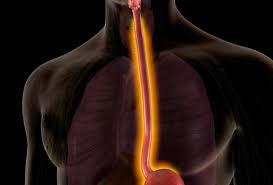CALL TODAY 646-846-1136 | EMAIL
Esophagus Surgery – What to Expect
The esophagus is an essential aspect of digestion. Without it, you couldn’t naturally deliver food from your mouth to your stomach. However, there are some times where surgery needs to be performed on the esophagus. How does the esophagus work? What can go wrong and how can surgery help? What is recovery like for esophagus surgery?
How the Esophagus Works
The process of digestion begins as soon as food enters the mouth. The very first step in digestion is chewing, breaking down large chunks of food into smaller, more manageable pieces. Saliva is also brought into the mix to help chemically reduce the food as well. In order for the food to continue to be processed by the stomach, intestines, and other associated organs, it needs to travel down the esophagus. When we first think of it, we might imagine that the esophagus is simply a tube, similar to a straw. We may think that food simply falls down our throat and into our stomach, that the esophagus is a very simple structure. That could not be further from the truth! In fact, there are many muscles that are involved in delivering food from the mouth to the stomach. This can be seen by the fact that we can swallow sitting down, laying down, or even upside down.
Once food enters the esophagus, the smooth muscle tissue within the esophagus contract in a wave formation, gradually pushing food down our throat. Additionally, there are two valve-like structures, called sphincters, that block entrance two or exit from the esophagus. Without these sphincters, food in our mouth would instantly drop down to the stomach. Alternatively, digestive enzymes and juices could come up from the stomach, known as acid reflux.
What can go Wrong
 Clearly, the esophagus is more than just a hollow tube for swallowing. Because of the complex nature of the esophagus, there are a number of things that can potentially go wrong. As mentioned above, the sphincters within the esophagus are essential for proper digestion and processing of food. In severe cases of acid reflux, surgery must be performed to tighten the sphincter that separates the esophagus from the stomach. Alternatively, these sphincters can become overly tight or lacks the mobility to properly deliver food to the stomach. In these cases, surgery is required to open up the affected area and facilitate swallowing. Another common situation necessitates surgery of esophagus is cancer.
Clearly, the esophagus is more than just a hollow tube for swallowing. Because of the complex nature of the esophagus, there are a number of things that can potentially go wrong. As mentioned above, the sphincters within the esophagus are essential for proper digestion and processing of food. In severe cases of acid reflux, surgery must be performed to tighten the sphincter that separates the esophagus from the stomach. Alternatively, these sphincters can become overly tight or lacks the mobility to properly deliver food to the stomach. In these cases, surgery is required to open up the affected area and facilitate swallowing. Another common situation necessitates surgery of esophagus is cancer.
As with any cancer, esophageal cancer poses of risk for metastasis, or spreading of cancer throughout the different systems of the body. If cancer has been found in the esophagus and is localized, your surgeon may recommend that some or all of the affected tissue is removed.
Esophageal Surgery Recovery
Of course, the exact length of recovery for esophageal surgery will vary depending on the amount of surgery required. Depending on the specific protocols followed, some esophageal surgeries will only require a few days of recovery before returning home. Other, more involved surgeries may require an extended stay with close observation. Some changes may need to be made in your lifestyle, such as changes in diet and temporary limiting of strenuous activity.
As a general principle, any activity that causes pain in the affected area should be avoided for the first few weeks. Your surgeon will have more specific instructions for you as far as what to expect with your precise procedure, what to do to prepare, and what lifestyle changes may need to be made.
—
Are you in need of esophageal surgery? Get in touch with the best surgeons in NYC to schedule an appointment today.
———
References:
https://surgery.ucsf.edu/conditions–procedures/esophageal-cancer.aspx
https://www.cancer.org/cancer/esophagus-cancer/treating/surgery.html
https://www.ariahealth.org/programs-and-services/surgery/general-surgery/surgery-for-esophagus

